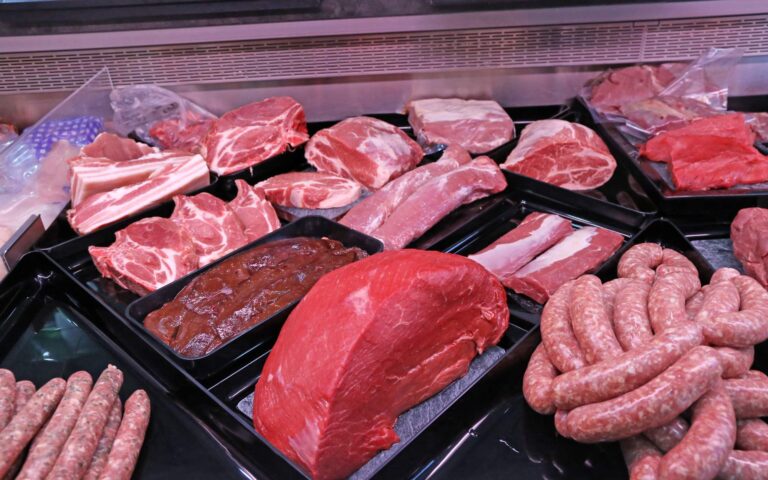Lithuanian authorities have uncovered a number of hygiene violations at different producers in a series of recent operations.
In the first case, the State Food and Veterinary Service (VMVT) inspectors found an illegal meat canning factory in the garage of a residential building.
Inspectors of the Šiauliai Department of VMVT organized a control purchase with the Šiauliai Division of the State Labor Inspectorate (VDI) and the Šiauliai Police after receiving a report about the possible illegal production of meat.
During the operation, it was revealed that the person was handling canned meat in a house and garage, without having a permit. Boxes of canned goods ready for sale were kept in a garage, in cardboard boxes.
Authorities said canned meat made in unsanitary conditions poses a risk to health. Canned foods prepared with poor food safety and hygiene can harbor bacteria and toxins that cause botulism. They encouraged consumers to verify the manufacturer is legitimate and that the product is properly labeled before purchase, or to inform the authorities.
An autoclave for canning was found in the garage but no documents were provided showing the safety of the operation. All equipment will be confiscated as part of the investigation and administrative measures have been opened against the suspect.
In another case, inspectors of the Telšiai Department of VMVT carried out an unannounced inspection at a production plant owned by UAB Restera.
During the visit, hygiene violations were recorded with poor maintenance as well as mold and dirt at the site. The company’s activities were suspended until all issues were resolved and it is also facing a financial penalty.
Officials said that some raw materials were stored in incorrect conditions, so will be destroyed. Self-control logs, which detail factors important for food safety such as cleaning records and temperature changes, were believed to have been completed incorrectly as it was written that the premises were cleaned daily.
Unsafe meat and potential outbreaks
Also in October, inspectors in Vilnius helped to uncover hygiene deficiencies at a cutting shop and with equipment at the premises.
During an inspection, more than 4 tons of sliced pork were found. Products were not labeled, so authorities could not check the traceability, shelf-life, safety and quality of the meat. Self-control logs were also not filled in.
Meanwhile, officers from the Kaunas Department of VMVT discovered more than 300-kilograms (661 pounds) of potentially unsafe meat at one producer.
Findings from an inspection led to suspension of the producer. Unlabeled meat products and a carcass that didn’t appear to have been checked by an approved veterinarian were found. There was also a lack of documentation and some equipment was in a poor state.
The Šiauliai Department of VMVT was part of a team that investigated a suspected foodborne outbreak.
Based on information from the National Public Health Centre (NVSC), an unspecified number of people who attended a private event showed symptoms of infection such as nausea, vomiting, and fever.
A kebab shop in Radviliškis was suspended after an inspection found no hot running water in the food handling area, a risk of cross-contamination, expired food products and poor cooking practices.
In another outbreak, officials from Marijampole evaluated food safety at a kindergarten after six children got sick.
An inspection found no violations of personal hygiene or in the safety of food production practices with food stored in suitable conditions. Food, water, and environmental samples were sent for analysis.
Source: FSN




